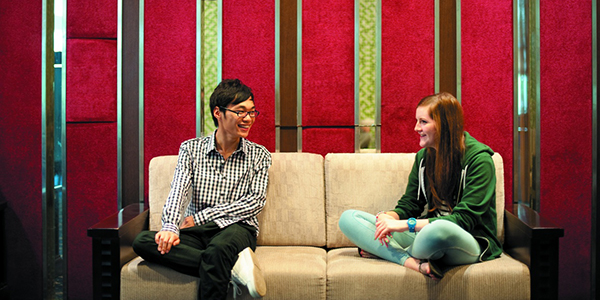
January 30, 2017, by Emma Thorne
Put your own oxygen mask on first?
January is notoriously the toughest month for many people – the depths of winter with the sparkle of Christmas behind us, dark days still ahead and the warmth of summer feeling far from reach. But it’s also an excellent time to evaluate our own mental health and devise strategies for protecting our resilience for the year ahead. In the last of our New Year, New You mini blog series, Mat Rawsthorne, researcher for the REBOOT trial in the Institute of Mental Health, talks about some steps you can take to stay on your feet.
I find winter problematic – not just the signals to hibernate but the disruption to routines. So what is the solution to keeping going when the cold winds are blowing? There isn’t one! As Miranda Hart said about tights “one size does not fit all!”
However, in staying well there are a number of evidence-based suggestions, not meant to be definitive, exclusive or overly prescriptive: Connect, Learn, be Active, Notice and Give. (N.B. CLANG is not the official acronym for the Five Ways to Wellbeing but it is how I remember them). Connecting is building relationships. Learning means trying out new things. Being active is making use of your body. Noticing is switching your attention outside your skin e.g. by appreciating nature. Giving is doing things for other people. Some activities, like inviting a friend out at lunch to explore campus can combine all five.
The importance of self-care is the first lesson I learned when I trained in peer support; but is there a paradox in this prioritisation – “you can’t give away what you don’t have”? Before I started helping research online support sites I was involved in facilitating self-help groups. For some people with a problem (particularly stigmatised issues), finding out that they weren’t alone in their struggle was massively helpful. Instead of being a ‘Top Trumps’ competition of who had it worst, I witnessed people gain hope from meeting others further down the road in learning to manage long-term and life-limiting conditions. These ‘veterans’ were also comforted through these interactions by realising the progress they had made and sharing the lessons they had learned.
This is the ‘magic’ of mutual aid: as Woody Allen said, “eighty percent of success is showing up”, but here the individual benefits arise from being part of something larger, not being apart. So my humble recommendation as a first step in surviving the season is to ask a fellow traveller (colleague, study buddy) how they are doing. Todd Kashdan calls curiosity ‘a social lubricant’. Start the conversation: “how are you getting on?”. You are bound to learn something, from them or yourself. Thursday 2nd February is an ideal excuse as it is Time to Talk Day. Graham Thornicroft found that the worst response someone in distress can get is to be ignored. So ask the question – you’ll be doing both of you a favour.
No comments yet, fill out a comment to be the first

Leave a Reply